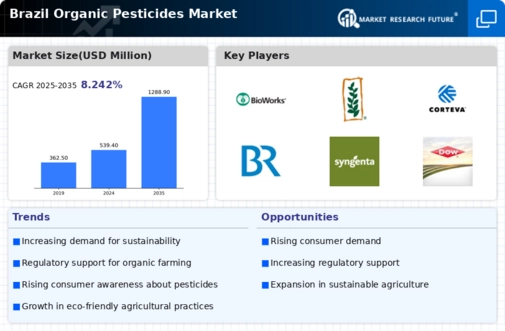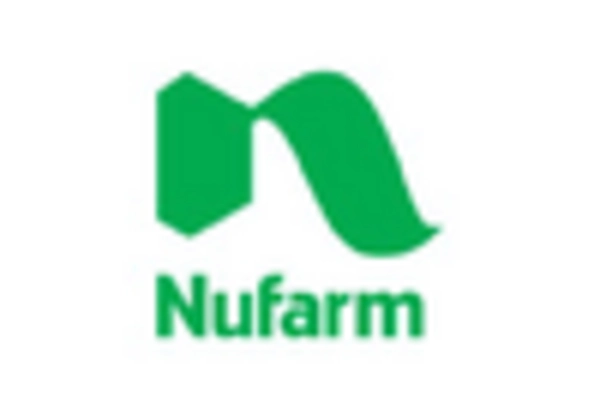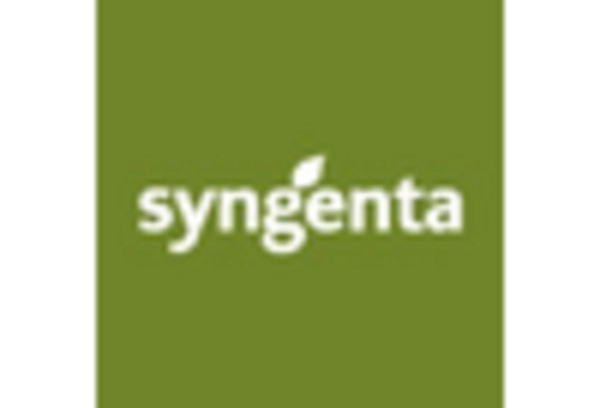Increasing Consumer Awareness
The organic pesticides market in Brazil is experiencing a notable surge in consumer awareness regarding the health and environmental impacts of conventional pesticides. As consumers become more informed about the potential risks associated with synthetic chemicals, they are increasingly seeking safer alternatives. This shift in consumer behavior is driving demand for organic pesticides, which are perceived as less harmful to both human health and the ecosystem. According to recent surveys, approximately 65% of Brazilian consumers express a preference for organic products, indicating a strong market potential for organic pesticides. This heightened awareness is likely to propel the organic pesticides market forward, as consumers prioritize sustainability and health in their purchasing decisions.
Rising Organic Farming Practices
The organic pesticides market in Brazil is benefiting from a significant increase in organic farming practices. As more farmers transition to organic methods, the demand for organic pesticides is expected to rise correspondingly. Recent statistics indicate that the area dedicated to organic farming in Brazil has expanded by over 20% in the last five years, driven by both domestic and international demand for organic produce. This trend suggests a robust growth trajectory for the organic pesticides market, as farmers seek effective solutions to manage pests while adhering to organic standards. The increasing prevalence of organic farming is likely to create a sustainable market for organic pesticides in Brazil.
Regulatory Framework Enhancements
The regulatory landscape in Brazil is evolving to support the organic pesticides market. Recent initiatives by the Brazilian government aim to streamline the approval process for organic pesticide products, thereby encouraging innovation and market entry. The establishment of clear guidelines and standards for organic farming practices is expected to enhance consumer confidence in organic products. Furthermore, the Brazilian Ministry of Agriculture has reported a 30% increase in the registration of organic pesticide products over the past year, reflecting a growing commitment to sustainable agricultural practices. This supportive regulatory environment is likely to foster growth in the organic pesticides market, as more farmers adopt organic methods.
Export Opportunities for Organic Products
Brazil's organic pesticides market is also being driven by the growing export opportunities for organic agricultural products. With an increasing global demand for organic produce, Brazilian farmers are seeking to enhance their competitiveness by adopting organic farming practices, which necessitate the use of organic pesticides. Recent data indicates that Brazil's organic exports have seen a growth rate of 15% annually, highlighting the potential for organic products in international markets. This trend is likely to stimulate the organic pesticides market, as farmers invest in organic solutions to meet export standards and consumer preferences abroad.
Technological Advancements in Organic Solutions
Innovations in agricultural technology are playing a crucial role in shaping the organic pesticides market in Brazil. The development of new organic formulations and delivery systems is enhancing the efficacy and application of organic pesticides. For instance, advancements in biopesticides and natural pest control methods are providing farmers with effective tools to combat pests without resorting to synthetic chemicals. This technological progress is likely to attract more farmers to adopt organic practices, thereby expanding the market for organic pesticides. As Brazilian farmers increasingly embrace these innovations, the organic pesticides market is poised for substantial growth.
















